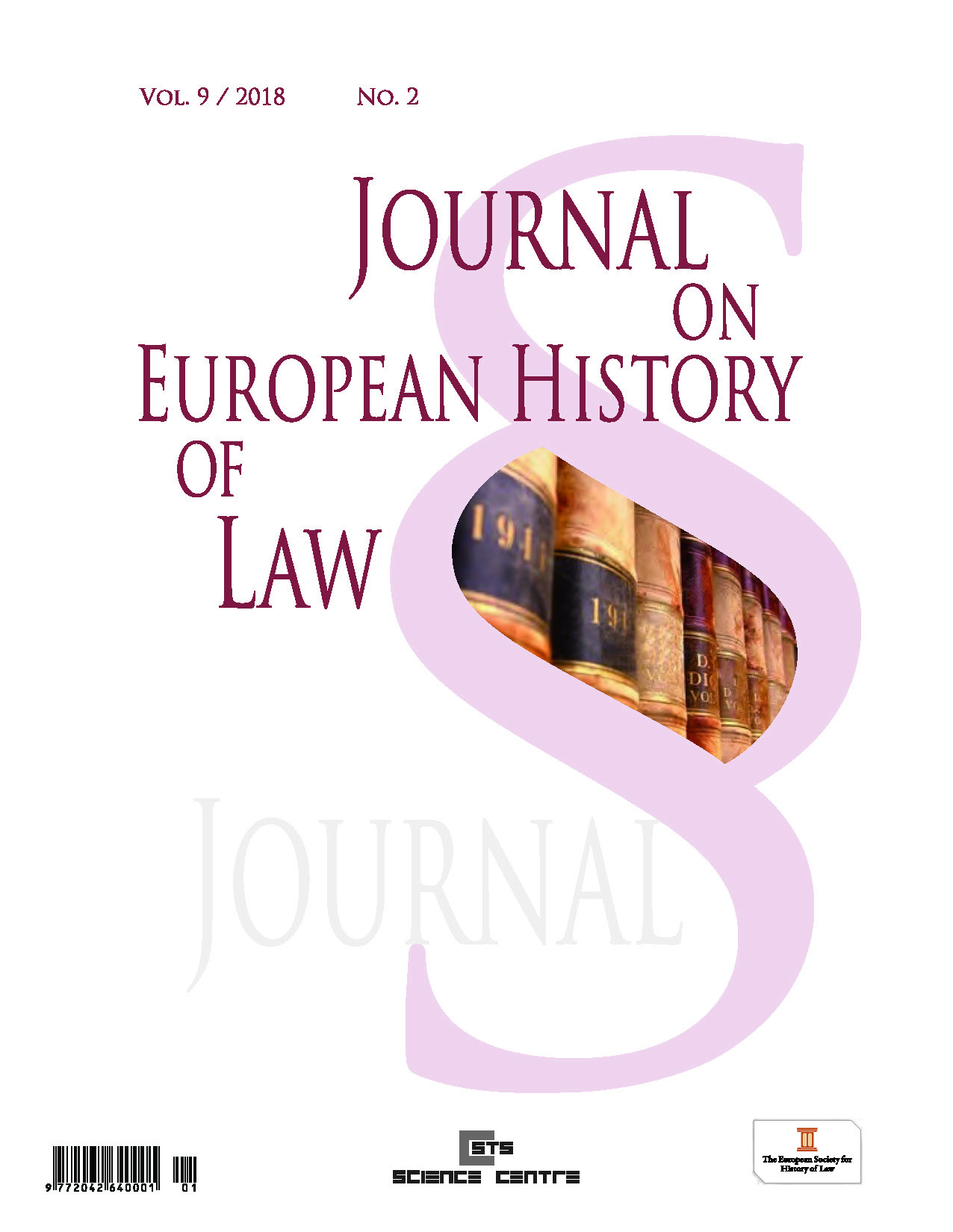Der Betrug in der ungarischen Strafrechtskodifikation an der Schwelle des 19. Jahrhunderts
Fraud in the Codification of Hungarian Criminal Law on the Threshold of the 19th Century
Author(s): Krisztina Korsósné DelacasseSubject(s): History, Law, Constitution, Jurisprudence, History of Law, Criminal Law, Political history, Criminology, 19th Century
Published by: Evropská společnost pro právní dějiny, z.s.
Keywords: fraud, stellionatus; falsum; Hungary; criminal law; codification; modernize; Penal Code; draft; legislation; 18th century; Enlightenment; Joseph II; Sanctio Criminalis Josephina; draft of the Hungaria
Summary/Abstract: Through the analysis the regulation of fraud will given a potential answer to the question whether the attempts to modernize criminal law in Hungary at the late 18th century – considering this crime – are truly modern. In the comparison are included the Sanctio Criminalis Josephina (1787), a piece of legislation which is not commonly classified as belonging to the Hungarian codification, and the draft of the Codex Criminalis which was completed in 1795 by a committee set up by the Diet in the year following the death of Joseph II. According to scholars, this draft can be considered as the first stage in the process of a modern Hungarian criminal law codification, which was no longer mere incorporation but met the rules of codification in the narrower sense as well as the principles of the Enlightenment, and which was the beginning of a qualitatively new phase of Hungarian legal development.
Journal: Journal on European History of Law
- Issue Year: 9/2018
- Issue No: 2
- Page Range: 240-246
- Page Count: 7
- Language: German

